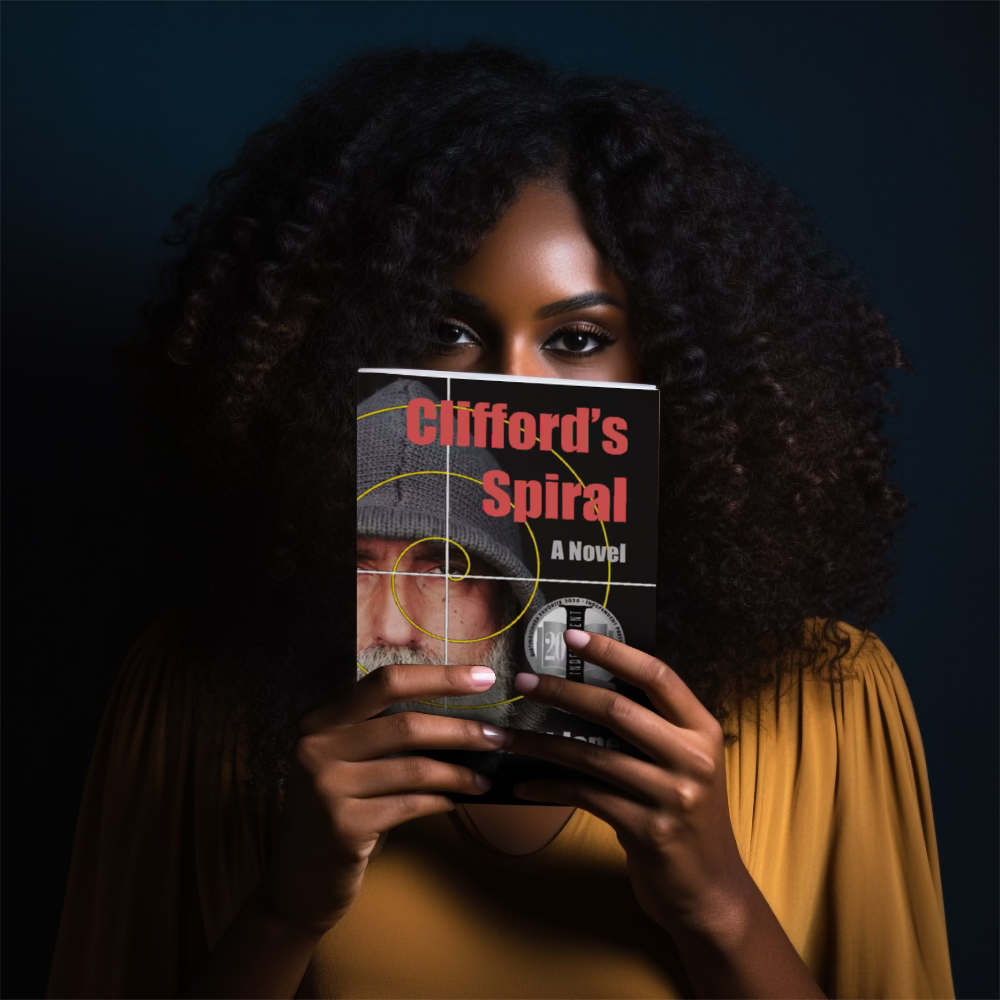Clifford's Spiral: Chapter 2
Continuing the serialization of this intensely thoughtful story...
Chapters are serialized here for paid subscribers.
About This Novel
In Clifford's Spiral, the stroke survivor’s past is blurry, and his memories are in pieces. He asks himself:
Who was Clifford Olmstead Klovis?
Stroke sufferer Clifford Klovis tries to piece together the colorful fragments of his memories. The narrative’s sardonic tone recalls the wry wisdom of Kurt Vonnegut, and its preoccupation with male centeredness is reminiscent of Philip Roth.
Chapter 2
After the episode, Clifford Klovis experienced brief moments of stark clarity. He had a collection of puzzle pieces, each of them in sharp focus, with vibrant colors and shapes. Those elements should, in combination with others, become complex forms and scenes, around which he might be able to impart some meaning. He was still, at some level, in possession of his faculties. More like beads than puzzle pieces, these snippets were the glittering jewels of his past. It was just, at this moment, he was having difficulty stringing them together. Did this come before that? The answers made a difference.
The Insiders have not spoken to me since I was hospitalized. The gap in communication affords some relief. Their intentions always seem beneficent and their manner of expression gentle, but the news they give me is distressing. Why should I even pay attention to them? Facing the truth can be uncomfortable, at best. Maybe they bring wisdom, but at what price? This situation feels like a punishment. Perhaps they will tell me what I did to deserve this, how to earn my way out. Am I supposed to wait for a message?
Meanwhile, Clifford would commit himself to his personal struggle for survival — with as much clarity as he could achieve. After all, with what else did he have to occupy his days? There was sunlight on his face in the mornings. There were three meals served by the clock, the keen anticipation of which came fully an hour before the appointed time. The ingredients were indifferent. The soup, no doubt, came from a can. The meat had been boiled to grayish-ness, the vegetables cooked to mush. There was always coffee, as if anyone would care for instant crystals dissolved in lukewarm water with cornstarch cream-substitute and, if he was lucky, a packet or two of real sugar instead of some nameless sweetener. But, even then, the taste of food was spectacular, a feast to be perpetually craved. It was definitely something to live for. He had dim memories of wine, but such delights were in a paradise perhaps not to be revisited. That other, invisible people labored mightily over steaming kettles to deliver the riches of the here and now to him, with no special instructions from him, made him profoundly thankful. He must try to get their names someday and send them — what? — an enormous basket of fresh fruit? Cash tips would be the thing, especially during the holidays, but how would he get it? He had no idea where his money was. But he was confident of its existence. Something or someone was paying for all this professional, institutional treatment.
They don’t bother with people who can’t pay. Not these days.
He was wearing a wristband on his left forearm. It showed his name, followed by “Willoway Manor,” a number, and three two-letter alphabetic codes. He figured that was the name of this place, which would be neither a hospital nor a luxury hotel, and the number was the personal identifier of himself and his clinical file. The two-letter alpha codes must be medic-alert flags for conditions such as diabetes, high blood pressure, or drug allergies. He had no idea what his could mean. He just hoped none of those cryptographic messages meant “arrogant prick,” “charity case,” or “clueless idiot.”
As with Rush Hospital, Willoway Manor was a place he knew about but had never been inside. He’d only seen it as a name on an architectural sign on a high security wall along Busse Highway in Elk Grove Village, out in the northwest suburbs of Chicago. Rush was closer to downtown. It must have been the nearest emergency room to the restaurant where they’d had Gabe’s party. He didn’t know much about Elk Grove Village, which was miles away from his home in Evanston. The town did have a literal elk grove, a public park where a few of those wild, horned animals still grazed. The park was a bubble of nature in the midst of the sprawling metropolis.
He still thought of himself as an Angelino, which he’d been ever since he and Tessa had moved the family from Cleveland decades ago. But in the last year, he and Eleanor had moved back to the Midwest to supervise her mother Lillian’s hospice care. Clifford detested the weather — his blood had thinned in the perpetual Mediterranean climate of Southern California — but he didn’t miss driving on the freeway, and he enjoyed taking the CTA “L” train whenever he felt like going into the city.
That’s where else I’ve seen Willoway — on a brochure in a file folder Eleanor had. It was one of the places we’d considered for her mother — before her health went downhill fast. Eleanor must have told Jeremy about it. Yeah, it’s not a hospital. But it’s not exactly a resort, either. Lillian’s insurance wouldn’t have covered it. I doubt if Uncle Sam will be so generous. Did they do the math on my prognosis? Expected lifespan days ahead times reasonable and necessary daily maintenance fee is greater than, equal to, or less than maximum benefit cap?
* * *
Myra walked in. She was a vision.
Keep reading with a 7-day free trial
Subscribe to Thinking About Thinking to keep reading this post and get 7 days of free access to the full post archives.



